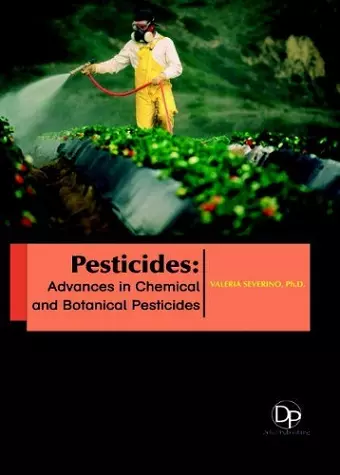Pesticides
Advances in Chemical and Botanical Pesticides
Format:Hardback
Publisher:Delve Publishing
Published:30th Nov '16
Should be back in stock very soon

In general, a pesticide is a chemical or biological agent that deters, incapacitates, kills, or otherwise discourages pests. Target pests can include insects, plant pathogens, weeds, mollusks, birds, mammals, fish, nematodes (roundworms), and microbes that destroy property, cause nuisance, or spread disease, or are disease vectors. Although pesticides have benefits, some also have drawbacks, such as potential toxicity to humans and other species. Pesticides belong to the family of agrochemicals and consist in molecules able to act against pests, insects, fungi and various diseases present in agricultural and crop industry. Pesticides can be chemicals, biological agents, also known as bio-pesticides and the relatively recent plant-derived or botanical pesticides. Pesticides of chemical origin are highly effective against the target organism. However, the chemical pesticides have toxic effects on several non-target species and the growing environmental concerns raises the issues of safety and evaluation of toxicity. Even if commonly used in several fields, pesticides and especially the chemical ones, have toxic effects and can be highly dangerous on non-target species. Thus, several concerns have been raised on the safety and toxicity of pesticides.
In this book some advances in chemical and botanical pesticides are discussed. In particular, in a first part of the book new chemical pesticides and their persistence and toxic effects on human population are presented. In the second part botanical pesticides from different plant sources along with their principal challenges are discussed. Botanical pesticides are agricultural pest management agents which are based on plant extracts. In modern times these have been used as alternatives to synthetic chemicals in organic pest management. The practice of using plant materials against field and storage pests however has a long history in many indigenous and traditional farming communities across the world. Finally, interesting genetic and biochemical approaches used to study genes involved in resistance to pesticides and biomarkers in pesticide assays are also presented.
ISBN: 9781680957594
Dimensions: unknown
Weight: unknown
210 pages